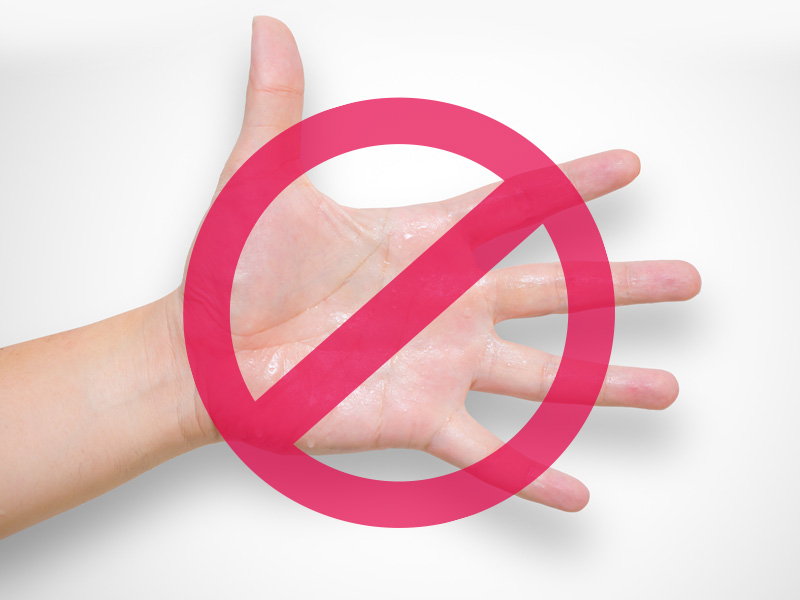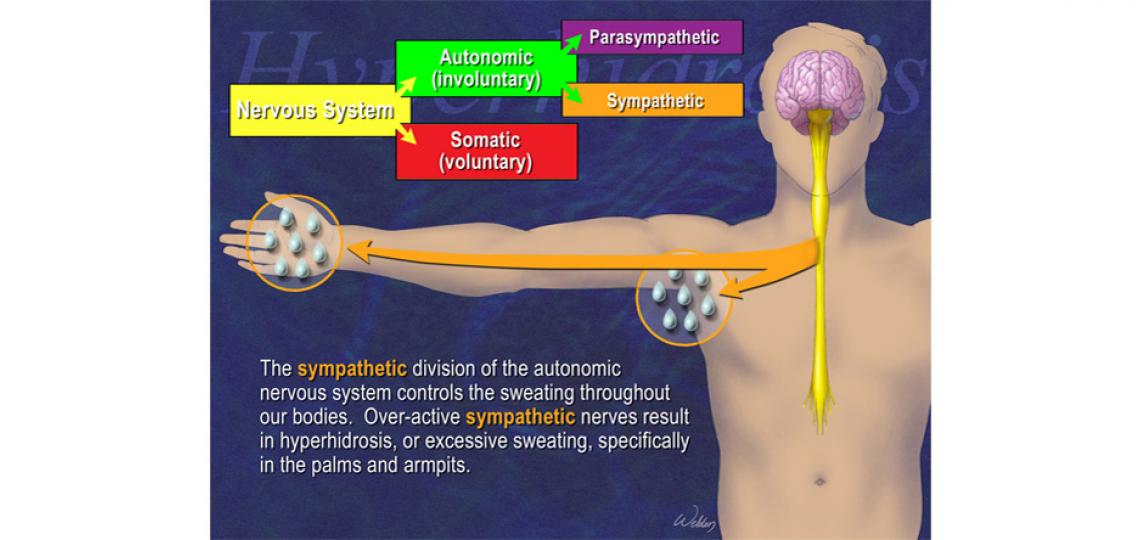Expert Dermatology Solutions for Treatment of Hyperhydrosis of Hands: Comprehensive Guide
Expert Dermatology Solutions for Treatment of Hyperhydrosis of Hands: Comprehensive Guide
Blog Article
Understanding the Root Causes of Excessive Sweating and Its Impact on Every Day Life
Excessive sweating, additionally referred to as hyperhidrosis, is a condition that influences a substantial part of the populace, yet its underlying reasons and effects on daily working remain somewhat enigmatic. While it is generally understood as a physiological response to manage body temperature level, the triggers for too much sweating can vary extensively amongst individuals, including not just physical aspects however likewise emotional and psychological elements. Furthermore, the influence of this problem prolongs beyond plain discomfort, often influencing social communications and total quality of life. By diving into the origin creates of hyperhidrosis and discovering its multifaceted effects, a deeper understanding of this pervasive problem can be gained, dropping light on the intricacies that individuals grappling with too much sweating browse every day.
Physiology of Sweat Glands
The policy of sweat production, a critical physical process, is primarily controlled by the task of sweat glands dispersed across the human body. Sweat glands are classified right into 2 major kinds: eccrine and apocrine glands.
When the body temperature climbs, either because of physical task, high temperatures, or psychological stress, the nerve system sets off the sweat glands to generate sweat. This sweat is composed primarily of water and electrolytes like salt and chloride. The procedure of sweat production is crucial for keeping the body's internal temperature within a narrow, optimum array, highlighting the critical role sweat glands play in human physiology.
Triggers for Excessive Sweating
In recognizing the root causes of extreme sweating, it is crucial to recognize the triggers that can lead to this physiological action. Physical physical effort, high temperatures, and spicy foods are likewise understood to activate too much sweating in people susceptible to this condition.
Additionally, medications such as some antidepressants, opioids, and certain supplements can likewise work as triggers for hyperhidrosis. Understanding these triggers is crucial in handling extreme sweating efficiently - Treatment for hyperhydrosis of hands. By recognizing and dealing with the certain triggers that motivate excessive sweating in a specific, doctor can establish personalized therapy plans to reduce this condition and improve the person's lifestyle
Medical Issue Associated
Connected with extreme sweating are different medical conditions that can worsen this physiological response. One typical problem is hyperhidrosis, a condition characterized by extraordinarily boosted sweating that exceeds the body's thermoregulatory requirements. This can manifest in focal areas like the hands, soles, underarms, or face, affecting an individual's lifestyle due to social humiliation and pain.
In addition, endocrine conditions such as hyperthyroidism, diabetes, and menopausal warm flashes can also result in extreme sweating. Hyperthyroidism creates an overflow of thyroid hormonal agents, speeding up metabolic process and setting off sweating. Diabetes can cause sweating episodes, specifically throughout hypoglycemic episodes when blood sugar level degrees drop too low. Menopausal warm flashes, attributed to hormone fluctuations throughout menopause, can cause intense and sudden sweating, usually gone along with by flushing and heart palpitations.
Additionally, infections like endocarditis, tuberculosis, and hiv have actually been related to night sweats, a common signs and symptom recognized to disrupt sleep and influence total well-being. These clinical conditions highlight the varied range of underlying variables that can add to too much sweating, requiring detailed evaluation and administration by healthcare professionals.
Emotional and psychological Aspects

Effect On Social Communications
Extreme sweating can have profound results on an individual's capacity to engage easily in social communications. The visible indications of sweat spots or wet spots on clothing can bring about shame and self-consciousness, triggering individuals to take out from social circumstances. This withdrawal can affect partnerships, limitation social activities, and prevent professional and individual growth.

Moreover, the anxiety and self-worth problems originating from too much sweating can influence interaction and social abilities. Individuals might struggle to concentrate on conversations, take part in group tasks, site or reveal themselves confidently. This can cause feelings of seclusion and loneliness, as social links come to be testing to maintain.
Verdict

While it is commonly understood as a physiological response to manage body temperature, the triggers for too much sweating can differ commonly among people, incorporating not only physical factors however additionally psychological and mental aspects. By delving right into the root creates of hyperhidrosis and exploring its multifaceted impacts, a much deeper understanding of this pervasive issue can be obtained, dropping light on the complexities that individuals grappling with excessive sweating navigate on an everyday basis.
Physical physical effort, high temperatures, and spicy foods are also understood to cause excessive sweating in individuals prone to this problem. By identifying and addressing the details triggers that motivate too much sweating in a specific, medical care providers can establish customized treatment plans to alleviate this condition and enhance the person's quality of life.
Extreme sweating can have profound effects on view an individual's capacity to involve pleasantly in social communications.
Report this page